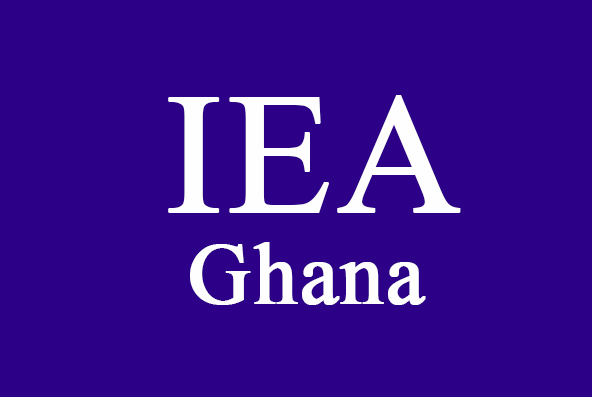The Institute of Economic Affairs (IEA) has expressed dismay about the sale of Newmont’s Akyem Gold Mine Project in Ghana to China’s Zijin Mining Group for $1.0 billion, describing the deal as flawed in several respects, inimical to Ghana’s interest and unacceptable.
According to the institute, Ghana needs a complete paradigm shift in its mineral contracts by taking ownership of the minerals to create job opportunities, wealth, and technical capacity development for Ghanaians.
“The IEA notes that the project lease was signed between the Ghana Government and Newmont on 19th January 2010 and has an expiry period of 15 years, that is valid until 19th January 2025. According to the terms, the lease is transferable within the duration period, subject to mutual agreement between the Government and Newmont. The lease is also subject to extension after its expiry date by mutual agreement. The lease has not yet expired and therefore, any decision by Newmont to sell the mine must be on a transfer basis and must be for the unexpired term only and subject to Government agreement”, it said in a statement.
“At the end of the expiry period, Newmont is obliged to hand over the mine back to Government, the truthful owner of the gold under the assigned land. Any company that wants to operate the mine after the expiry date of the lease must sign a new agreement with Government”, it added.
Continuing, the IEA pointed out that Newmont and the government have not reached any agreement for the mine to be transferred to Zijin for the unexpired term of the lease, which is up to January 19, 2025.
Again, it said it's unaware that Newmont has evoked the extension clause and that the government has agreed to such an extension, adding, “The IEA wishes to point out that apart from Newmont, no other company has an original locus or right in the extension of the Lease”.
Ghanaian Firms that Bid for Mine were Rejected
“The IEA has learned that some Ghanaian entities also bid for the mine, but were allegedly outbid by Zijin. Allowing a foreign company to take over the mine would, however, be contrary to the President’s own position as he stated in his State of the Nation Address (SONA) in February this year: “We will engage with Newmont to give priority to Ghanaian investors who will want to acquire this mine to ensure that our mineral resources better benefit the Ghanaian people.”
The question that the IEA asked is “What has changed now for the President to set aside his own principle and reject Ghanaian investors in favour of a foreign company?”
Again, it said even Canada, where Zijin is also seeking to invest in the domestic critical minerals sector, and planning initially to buy a 15% stake in Canadian copper company, Solaris Resources, has decided to limit Zijin’s stake in the interest of Canadian national security.
The IEA also emphasised that Ghana’s natural resources represent the low-hanging fruits for the acceleration of the country’s development and eradication of its endemic poverty.
Therefore, to achieve these goals, Ghana should maximise the benefits from these natural resources and this can only be done by jettisoning colonial-type mineral contracts skewed in favour of foreign companies.
The IEA reiterated that Ghana cannot afford to continue to sell its birthright cheaply to foreign companies—as it has been doing its entire history—only to descend on the companies’ capitals to beg for aid.
“The usual excuse given by Ghanaian officials that the country lacks the requisite capital and expertise locally for exploiting its natural resources and, therefore, has to depend on foreign investors and compensate them accordingly is no longer tenable. Other countries with similar conditions as Ghana’s have been able to negotiate much better terms for the exploitation of their natural resources”, it alluded.
IEA proposes 2 recommendations
Finally, it proposed two fundamental proposals to help introduce sanity into the governance of Ghana’s natural resources and to reduce corruption.
The first is to amend Article 257(6) of the Constitution that vests Ghana’s natural resources in the President on behalf of, and in trust for, the people, which seems to give him a carte blanche to sign the resources away at will.
The second is to introduce in the Constitution or the Minerals and Mining Act, 2006 (Act 703) a provision that prohibits the government from signing contracts above a specified monetary value six months to the end of their four-year term. This will prevent incumbent administrations from signing eleventh-hour contracts in favour of their families, friends or cohorts, or for personal gain.
Latest Stories
-
Center for Learning and Childhood Development Director Dr Kwame Sakyi honoured at Ghana Philanthropy Awards
5 hours -
Asantehene receives 28 looted artefacts
6 hours -
CAF WCL 2024: Ghana’s Thelma Baffour wins title with TP Mazembe
6 hours -
Benjamin Boakye slams politicisation of energy sector issues and ECG’s inefficiencies
6 hours -
Erastus Asare Donkor and Dr Neta Parsram win big at 10th Mining Industry Awards
7 hours -
Government is “suppressing information” about power sector challenges – IES Director
7 hours -
Majority of our debts caused by forex shortfall – ECG Boss
7 hours -
Pan-African Savings and Loans supports Ghana Blind Union with boreholes
8 hours -
Bole-Bamboi MP Yussif Sulemana donates to artisans and Bole SHS
8 hours -
Top up your credit to avoid potential disruption – ECG to Nuri meter customers
8 hours -
Dutch & Co wins 2024 Entrepreneur of the Year Award
8 hours -
We’ll cut down imports and boost consumption of local rice and other products – Mahama
11 hours -
Prof Opoku-Agyemang donates to Tamale orphanage to mark her birthday
12 hours -
Don’t call re-painted old schools brand new infrastructure – Prof Opoku-Agyemang tells gov’t
12 hours -
Sunon Asogli plant will be back on stream in a few weeks – ECG
12 hours

